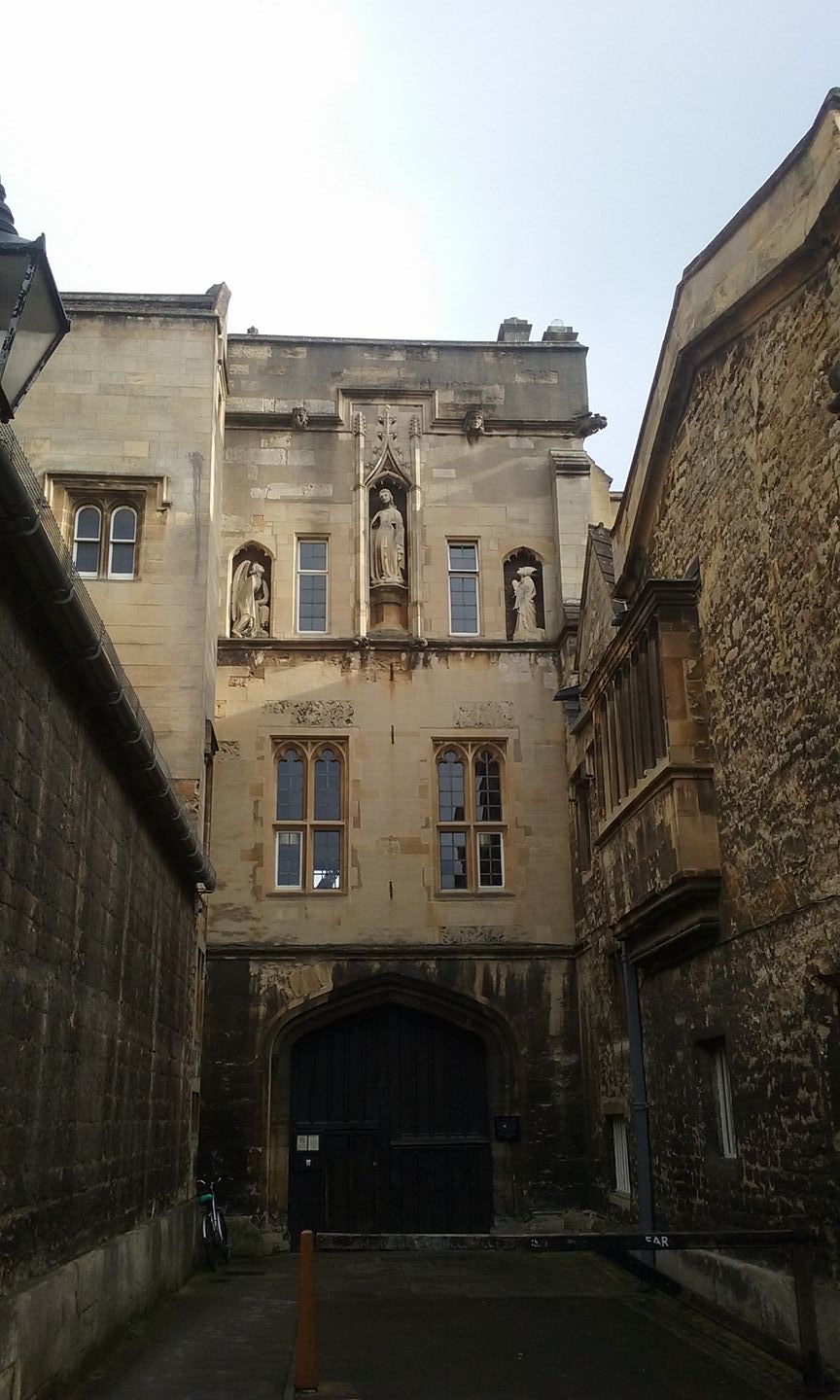
New College lane is about my favourite part of Oxford; the most Oxfordy bit of it. You can, if you squint, pretend that nothing has changed in hundreds of years - as long as you ignore the tarmac and the double yellow lines. But certainly little has changed in the thirty years since I left.
Today I was fortunate enough to have some warmth and some sunshine, and few people. The frontage here is just gorgeous. Astonishingly the
wiki article doesn't even have a pic of it; barbarians. Take careful note of the priest praying on the right and the angel adoring on the left.
You might complain that this isn't the best of photos and you would be correct to note this but not to complain; this is the photo I took
today and that is the important bit. What you can't see here is the light on the arches of the bridge just out of sight on the right, where the road turns. Every time I pass here I remember a May Day morning many years ago when I was stumbling along here and happened to pass as some bloke was playing a hand drum and perhaps singing - it is so long ago I cannot recall the details. For the moment and the place it was perfect.
We were in Oxford for the
Bebras finals. Sadly E didn't win, but enjoyed it and got a creditable 155, we're not exactly sure out of how many. I bunked off most of the events, since
I know what a cellular automaton is. So I spent much of the day sitting in Blackwells (reading
Words of Radiance) with an afternoon walk around Christchurch meadow. But I did go to Hertford for lunch (nice Hall; E folded me a
Dragon Curve) and the tour - nice college - and
the prizegiving -
nice chapel.
